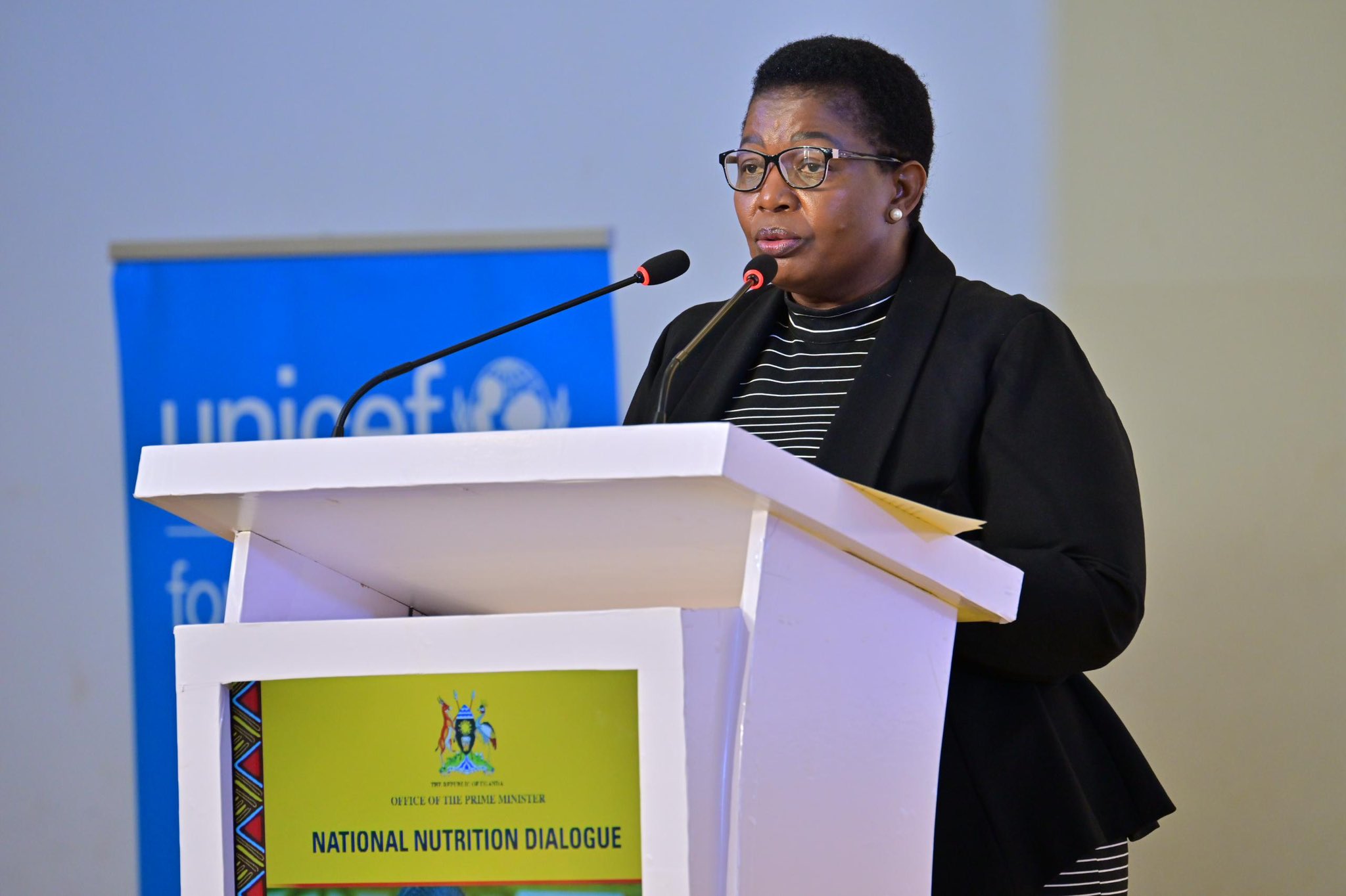
The minister in the office of the prime minister, Justine Lumumba, has called for a joint intervention approach in tackling nutrition challenges and elevating Uganda’s nutrition status.
Speaking at the inauguration of the National Nutrition Dialogue, she said that the ongoing Uganda Demographic and Health Survey (2022) and the Uganda Harmonised Integrated Survey (2021-2022) provide critical insights into the nation’s nutritional status, highlighting the urgent need for targeted interventions.
“Recent findings reveal concerning statistics about nutrition in Uganda,” Lumumba said.
According to data provided from the Uganda Bureau of Statistics (UBOS), 26.4% of women of reproductive age are classified as overweight or obese, compared to just 9.2% of men.
Additionally, anaemia affects 30.4% of children under five and 20.7% of non-pregnant women, with significant regional disparities that require immediate attention.
Lumumba noted that these figures underscore the necessity of scaling up interventions aimed at improving nutrition and health outcomes across the country.
”The national nutrition dialogue serves as a platform for stakeholders to reflect on the current state of nutrition in Uganda, assess progress made, and reaffirm their dedication to finding sustainable solutions for better health and well-being.” She stated.
She added that nutrition is not only fundamental to individual health but also crucial for Uganda’s overall human capital development and economic growth.
The National Nutrition Dialogue 2024, organised by the Office of the Prime Minister (OPM) of Uganda in partnership with UNICEF Uganda, aims to tackle nutrition challenges faced by Uganda and to explore actionable solutions.
This event is set to take place on December 11 and 12, 2024, at the Speke Resort Munyonyo and will convene key stakeholders from various sectors to facilitate discussions on key indicators that guide policy formulation, track progress under the Uganda Nutrition Action Plan, and evaluate the impact of existing nutrition interventions.
As Uganda faces persistent challenges in nutrition, the upcoming dialogue represents a critical opportunity for collaboration and innovation in addressing these issues.
Stakeholders are encouraged to engage actively in discussions that will shape the future of nutrition in Uganda and ensure improved health outcomes for all citizens.